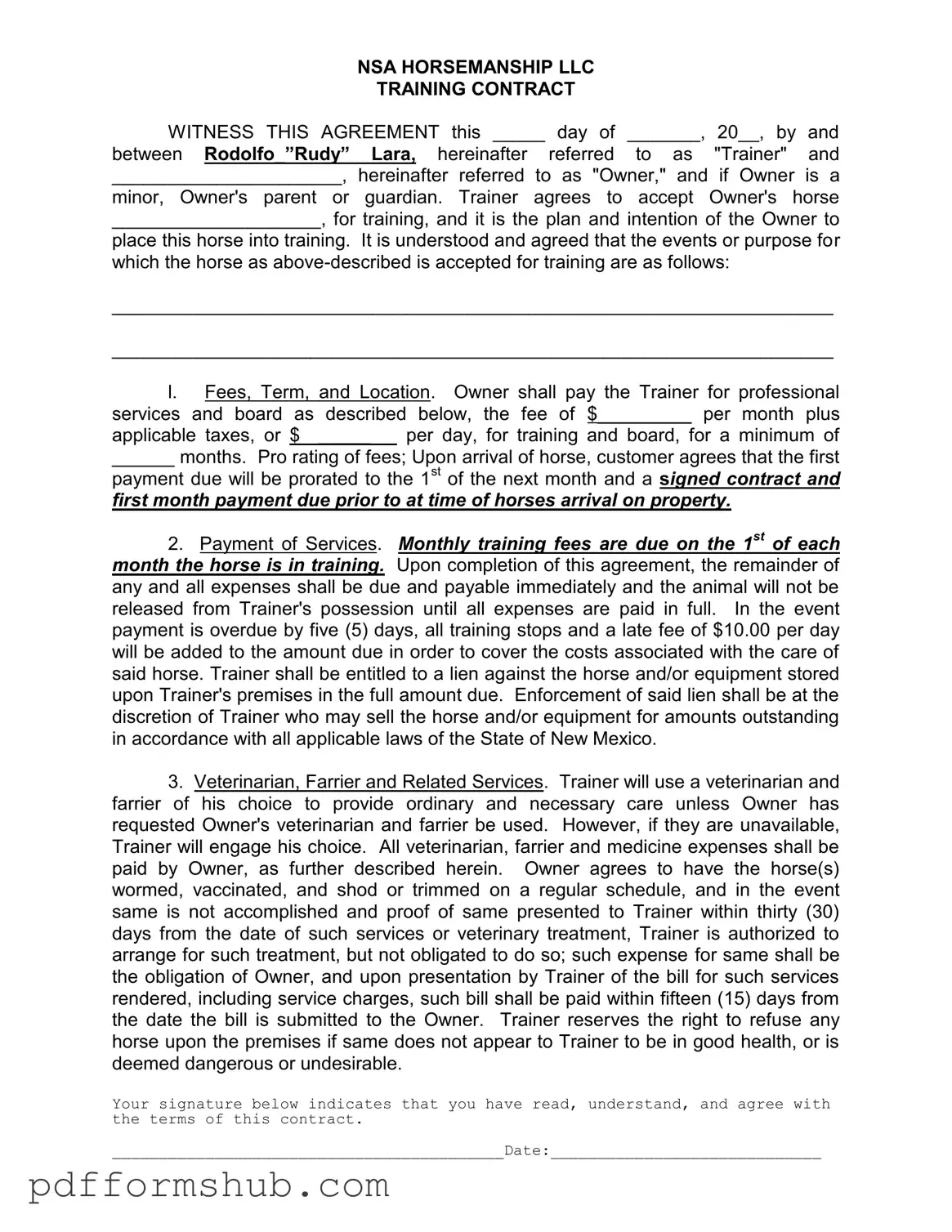Fill in Your Horse Training Contract Form
The Horse Training Contract is a formal agreement between a horse owner and a trainer, outlining the terms and conditions for training services. This document specifies details such as fees, responsibilities, and the care of the horse during the training period. It is essential for owners to understand the contract fully before signing, ensuring clarity on all aspects of the training arrangement.
For those interested in utilizing this service, please fill out the form by clicking the button below.
Customize Form

Fill in Your Horse Training Contract Form
Customize Form

Customize Form
or
Free PDF Form
Short deadline? Complete this form now
Complete Horse Training Contract online without printing hassles.